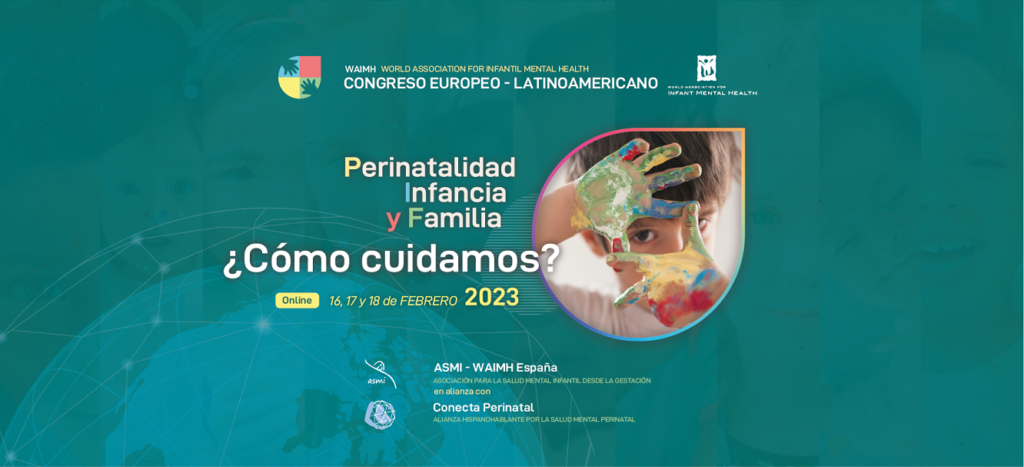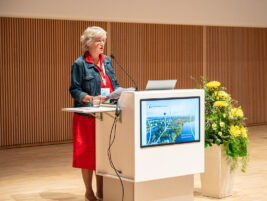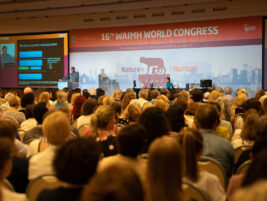The Spain Association for Infant Mental Health (ASMI) held a European-Latin American Congress from the 16th to 18th February 2023. The theme of this Congress was Perinatality, Childhood and Family, How do we care? The presentations were rich and diverse, consistent with the diversity of dedicated clinicians. The conference was opened by Pascual Palau Subiela, Campbell Paul, and Bernard Golse from Paris.
It was an online Congress and had 280 mainly Spanish but also French, Portuguese and some German-speaking participants. Attendees online were also Spain, Argentina, Peru, Puerto Rico, Italy, Finland, Israel, South Africa, UK and Australia.
Campbell Paul, President of WAIMH, gave an opening address. He spoke about the challenging topic of helping very ill infants. The title of his talk was “Professionals and parents working together with sick and troubled infants and families: seeing things through the baby’s eyes”. His presentation showed how it is possible to address the infant directly, even if very small and ill. He demonstrated how this empathic and reciprocal interaction is possible even if it takes place via zoom. If there is one aspect that sets infant mental health apart from work with older children, it is this acknowledgement that infants have an inner life and that have their own experiences separate from their parents. That they too see, feel and hear the world and themselves in their own unique way.
Campbell’s rich presentation was followed by the WAIMH Symposium with the title of Initiatives in responding to the mental health needs of infants whose parents have mental health problems.
Kaija Puura from Tampere University in Finland presented Modification of Dialectic Behavioral Therapy: Web-based Parental Coaching. This intervention aims to improve emotion and behaviour regulation in parents which in turn would result in reducing their children’s emotional and behavioural symptoms. A web-based parental coaching programme was developed during 2019-2022 with four different programmes each focusing on a particular symptom, such as temper tantrums of sleep or eating difficulties. Content and videos were provided online, including in Apps on mobile phones. There were weekly exercises and check-ins. For the staff this intervention was easy and feasible to do. For the parents that participated it was beneficial and they appreciated not having to travel but that they could still have regular contact with the coach. This novel way of helping parents to contain their children was particularly important and relevant during the Covid pandemic, but it may well be the beginning of an ongoing possibility for interventions with parents.
Miri Keren from Tel Aviv University Medical School in Israel presented Paternal Mental Health: Why is it relevant to Infant Mental Health? The inclusion of fathers in the field of perinatal mental health is gaining increasing attention. She gave an interesting clinical example of a family where the father’s anxiety disorder was brought to light through the consultation with his family about their toddler’s problematic behaviour. Paternal mental health is a neglected topic, despite evidence in research and clinical experience of the importance of the unique role that fathers play. Problematic paternal behaviours because of mental health issues have a direct impact on children’s emotional development. Depression in fathers occurs in 10% of men and occurs between 3-6 months post-partum. The incidence may well be higher, because the focus has been more on the mothers and fathers might find it difficult to ask for help. Fathers may also be at the same risk for anxiety disorders than mothers. Paternal substance abuse and anti-social personality disorder impact the child through the effects of their behaviour on the family. Genetic transmission is an added risk factor for the children born into such affected families. Thus, as we advocate for increased father involvement in children’s lives, we also need to pay more attention to paternal mental health.
Astrid Berg from the Universities of Cape Town and Stellenbosch in South Africa concluded the symposium with a presentation on Mothering-from-the-Inside-Out: A reflective parenting intervention implemented in South Africa. This intervention was adapted to the local context and proved to be acceptable and feasible to the patient groups who were part of the study. The principles of this intervention have overlaps with Dialectic Behavioural Therapy in that the aim is to facilitate parents to mentalize for themselves and their child. This particular intervention was developed at Yale University in the USA, so it was of importance to see how it could be adapted to suit a different context. The fact that the manualization of this intervention is based on broad principles such as foregrounding the therapeutic alliance, of bestowing personhood on the infant, of providing a space for reflection and developmental guidance, made it possible to reach and help mothers in diverse settings and from diverse cultural and language backgrounds. In the end, perhaps no matter where in the world, it is the relationship that matters – whether between parent and infant or between therapist and parent and infant.
This congress was held in Spanish, and we were concerned about the issue of translating from English into Spanish. This was however handled well by Natalia Valverde of the Equipo Organización Congreso. She was helpful in organizing and reassuring us. The online format worked smoothly.
We look forward to another Spanish-speaking regional conference.
Authors
Astrid Berg, WAIMH President Elect, South Africa
Campbell Paul, WAIMH President, Australia








